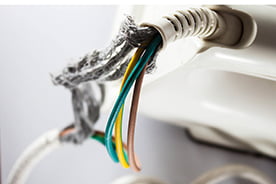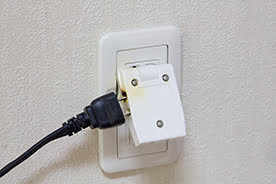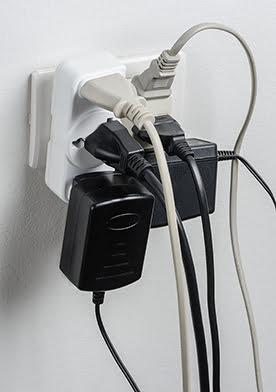Appliances are an integral part of every household, from a simple electric clock to the microwave oven. These safety tips can help keep all appliances operating safely:



Appliances
Cords
Every electrical appliance has a cord, and many homes use extension cords to increase the range of electrical outlets. These safety tips can help keep cords in good condition for safe operation:
Follow These Safety Tips
Think about what is in your home for a moment. Think about just one room.
How many outlets are in that room? What are they powering? Lights? Chargers? TVs? Appliances? A home’s electricity is probably taken for granted more than just about anything else in it. It’s also why it’s good to brush up on the potential hazards that your home’s electricity poses to you and your family.
Being safe when using electrical appliances, extension cords, light bulbs and other equipment is easy, and safety tips should be included in household rules, homeschool fire safety and daily behavior expectations for all members of the family. It only takes one mistake to spark an electrical fire, but simple prevention measures can be effective solutions.
Outlets
Every cord has to plug into an appropriate electrical outlet, but these tempting niches are inviting to unwelcome objects that can cause shorts and fires. Use these electrical safety tips at home to keep outlets safe:
Light Bulbs
Light bulbs are the single most common electrical fixture in homes, and proper light bulb safety can keep them from becoming a common electrical hazard.
General Tips
Even though electricity is commonplace, there is still quite a bit of danger associated with improper use. Carefully observe all safety measures when using electricity to keep yourself – and your family – safe.
